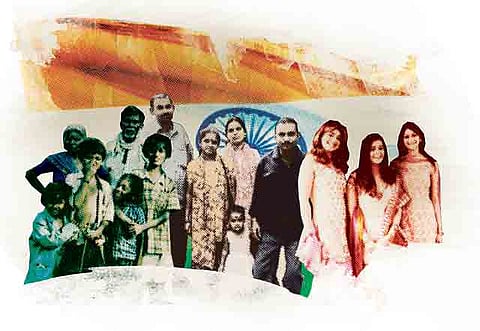Democratic India should be casteless
The decision to include caste in next year's census is unconstitutional

One of the first tasks that prime minister Jawaharlal Nehru undertook after winning independence was to abolish the caste system. In all government records, registers and application forms the caste column was deleted. A colonial practice was renounced and the pre-independence promise redeemed. It had taken the nation some 88 years to overcome the ignoble stigma of discrimination.
Little did freedom fighters suspect that the parliament of the sovereign Indian Republic would bring back this relic of British rule within 62 years. Ironically, the same Congress party that was instrumental in throwing out the British announced last week that the forms for next year's census will have a column to record caste. The Manmohan Singh government was reluctant to introduce such a step because some Cabinet members argued that caste was discriminatory. But none of its members seem to be sufficiently committed to a casteless society, a prerequisite of a sound democratic system, to strongly argue the point.
Political parties in the opposition had their way because the government, after putting on a brave face, caved in. True, the ruling Congress does not have a majority in the Lok Sabha. But it could have mustered a majority if it had stood firm. It did not have to placate the leaders of the Other Backward Classes (OBC) to stay in office.
The government does not seem to understand the repercussions of encouraging parochialism. It was the British policy to divide and rule. Post independence, society has to be integrated — however strong the forces are that seek to stratify it.
The government should have at least held consultations with the National Integration Council, which is meant to discuss such problems. Caste is something that will affect the nation as a whole. Parliament, which does not represent more than 50 per cent of the electorate, cannot push the country back into the dark ages.
Betrayal
Electoral politics has blinded the three Yadav leaders — Sharad Yadav of the Janata Dal's splinter group and the two former chief ministers, Mulayam Singh Yadav from Uttar Pradesh and Lalu Prasad Yadav from Bihar. They have betrayed their mentors, socialist Dr Ram Manohar Lohia and Gandhite Jayaprakash Narayan, who supported a casteless society.
Yadav leaders have argued that their flock, the OBC, would be entitled to more reservations in employment and educational institutions after the census, which they believe will show the OBC are greater in number than currently estimated. They already enjoy a quota of 27 per cent, four per cent more than the Scheduled Castes and Tribes, the only groups recognised by the Constitution.
The Supreme Court has limited reservations to 50 per cent, judging that at least 50 per cent of jobs and admission to educational institutions should be awarded on merit. If OBC leaders want more, they have to appeal to the Supreme Court. The census will not give them greater reservations, nor can parliament.
Where is the guarantee that the census will quantify the numbers accurately? There are risks that the numbers will be fudged. An enumerator goes to an ordinary person and asks him about his caste. The latter can say anything in reply. There is no way of checking whether the answer given is correct. The enumerator's job is merely to write what is told to him.
My knowledge of law, however limited, tells me that including caste in next year's census violates the Constitution. The preamble says that the people resolve to constitute India into a "sovereign socialist democratic republic". In the Keshvanand Bharti case, the Supreme Court ruled that the preamble outlines the basic structure of the Constitution, which cannot be amended by parliament (Article 368).
Caste is the antithesis of democracy and socialist ideology. Any effort to divide people into castes is unconstitutional. If the government wants to go ahead with this, it should refer the matter to the Supreme Court. Why not do this now?
Motive
It is surprising that the Bharatiya Janata Party (BJP) has agreed to including caste in the census. The party is always proclaiming the need for emotional unity, yet it is supporting something divisive due to electoral considerations. It wants to be seen arm-in-arm with the Yadav leaders, who are trying to project the inclusion of caste as a progressive step. The BJP, like other political parties, knows that elections are increasingly contested by appealing to sub-castes, not castes alone.
Poverty is not confined to the OBC. In a country where 40 per cent of the population earns less than a dollar a day, political parties should make a concerted effort to lift people out of the deplorable economic conditions in which they are living. It is time to make poverty, rather than caste, the basis of reservations.
Although there are good intentions behind reservations, they have primarily benefited the leaders of the OBC and the Scheduled Castes and Tribes. The Supreme Court has said more than once that the next generation should benefit. But the leaders of these communities, particularly the Yadavs, are determined to profit. Their monopoly on reservations must come to an end if India is to remain a truly casteless society.
Kuldip Nayar is a former Indian High Commissioner to the United Kingdom and a former Rajya Sabha member.


